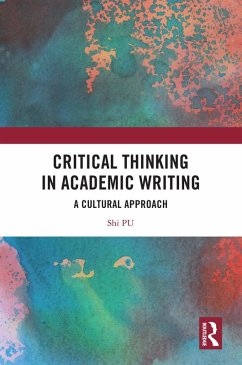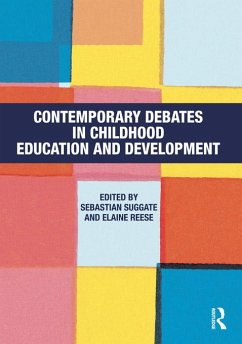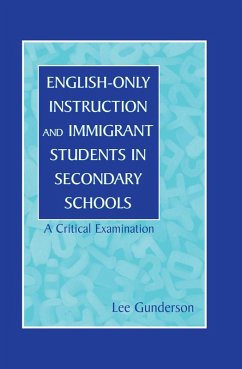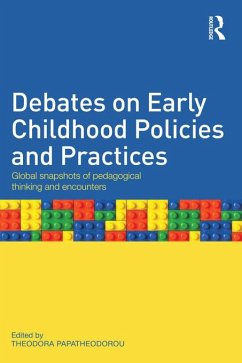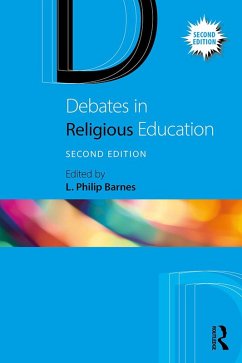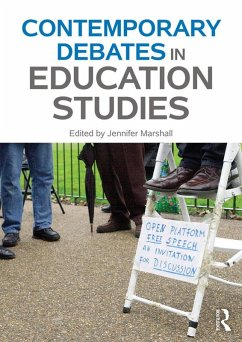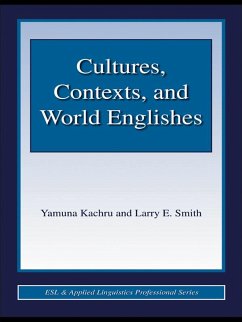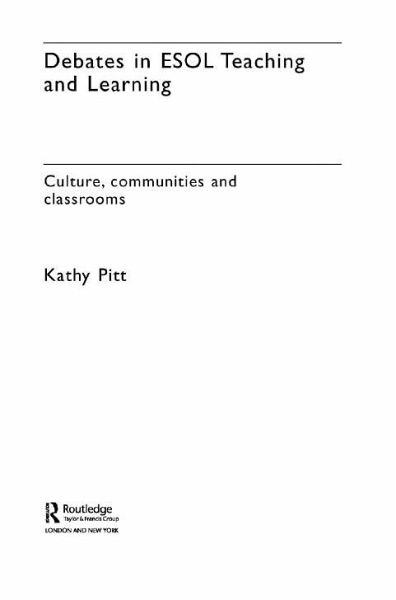
Debates in ESOL Teaching and Learning (eBook, ePUB)
Cultures, Communities and Classrooms
Versandkostenfrei!
Sofort per Download lieferbar
44,95 €
inkl. MwSt.
Weitere Ausgaben:

PAYBACK Punkte
22 °P sammeln!
This unique book provides a lively introduction to the theory and research surrounding the adult learning of English for Speakers of Other Languages. Offering a digest and discussion of current debates, the book examines a wide geographical and social spread of issues, such as:* how to understand the universal characteristics of learning an additional language* what makes a 'good' language learner* multilingualism and assumptions about monolingualism* learning the written language* the effect of recent Government immigration policy on language learning processes.As a majority of adults learnin...
This unique book provides a lively introduction to the theory and research surrounding the adult learning of English for Speakers of Other Languages. Offering a digest and discussion of current debates, the book examines a wide geographical and social spread of issues, such as:
* how to understand the universal characteristics of learning an additional language
* what makes a 'good' language learner
* multilingualism and assumptions about monolingualism
* learning the written language
* the effect of recent Government immigration policy on language learning processes.
As a majority of adults learning ESOL are from communities of immigrants, refugees and asylum seekers, understanding the diversity of social and personal history of learners is a critical dimension of this book. It also recognises the social pressures and tensions on the learners away from the classroom and discusses various types of classroom and language teaching methodologies.
Full of practical activities and case studies, this book is essential reading for any basic skills teacher undertaking a course of professional development, from GNVQ through to post-graduate level.
* how to understand the universal characteristics of learning an additional language
* what makes a 'good' language learner
* multilingualism and assumptions about monolingualism
* learning the written language
* the effect of recent Government immigration policy on language learning processes.
As a majority of adults learning ESOL are from communities of immigrants, refugees and asylum seekers, understanding the diversity of social and personal history of learners is a critical dimension of this book. It also recognises the social pressures and tensions on the learners away from the classroom and discusses various types of classroom and language teaching methodologies.
Full of practical activities and case studies, this book is essential reading for any basic skills teacher undertaking a course of professional development, from GNVQ through to post-graduate level.
Dieser Download kann aus rechtlichen Gründen nur mit Rechnungsadresse in A, B, BG, CY, CZ, D, DK, EW, E, FIN, F, GR, HR, H, IRL, I, LT, L, LR, M, NL, PL, P, R, S, SLO, SK ausgeliefert werden.




